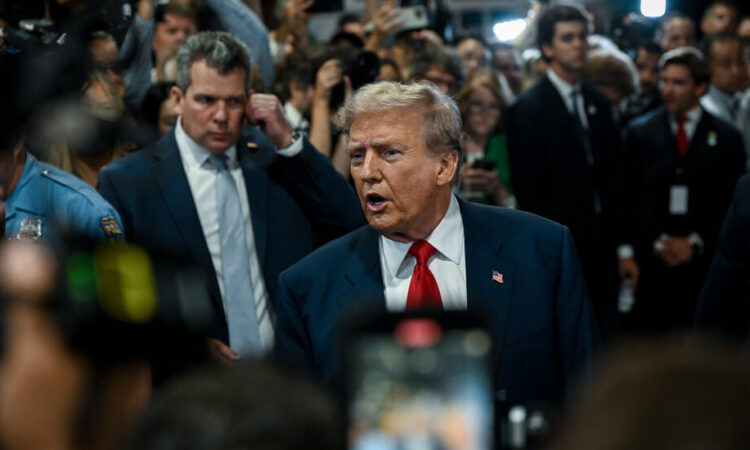
A day after an apparent assassination attempt against former President Donald J. Trump, he appeared on a livestream on Monday to champion his latest business venture: cryptocurrencies.
“Crypto is one of those things we have to do,” Mr. Trump said on X. “Whether we like it or not, I have to do it.”
Beside him were his collaborators, including a family friend; Mr. Trump’s two oldest sons, Donald Trump Jr. and Eric Trump; and two little-known crypto entrepreneurs with no experience running a high-profile business. Together, they were rolling out Mr. Trump’s crypto venture, World Liberty Financial, a project that has already raised concerns about the former president’s conflicts of interest and even alarmed some of his most vocal supporters in the industry.
Mr. Trump has promoted the venture since August, but its exact purpose remains unclear. No official launch date has been set. On the livestream, he did not address the project directly, leaving the details to the two entrepreneurs, Chase Herro and Zachary Folkman. Mr. Herro has described himself as “the dirtbag of the internet,” while Mr. Folkman used to teach classes on how to seduce women.
It’s highly unusual for a presidential candidate to embark on a new business just weeks before Election Day, and even rarer for one to aggressively promote a venture designed to benefit himself and his family. But throughout his political career, Mr. Trump has engaged in business dealings that ethics experts have flagged as problematic. He is the majority owner of Trump Media & Technology Group, the publicly traded parent company of his social media platform, Truth Social, which accounts for some $2 billion of his personal wealth.
Danielle Brian, executive director of the Project on Government Oversight, a nonpartisan watchdog group, said that if Mr. Trump was elected in November, his involvement in the crypto venture would create serious conflicts of interest. The Securities and Exchange Commission has cracked down on the industry, arguing that nearly all cryptocurrencies are unregistered securities and ought to be regulated like stocks traded on Wall Street.

